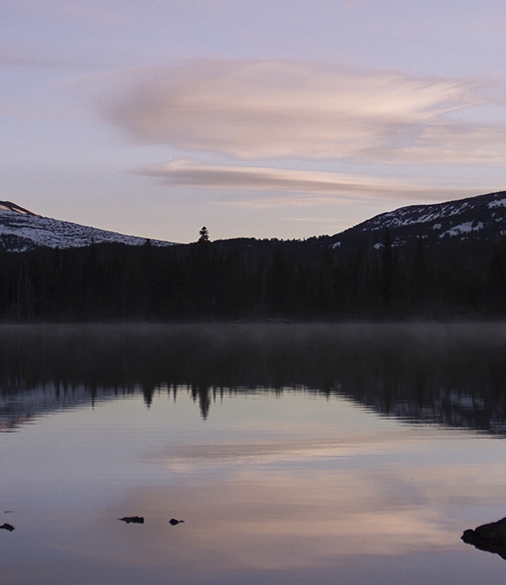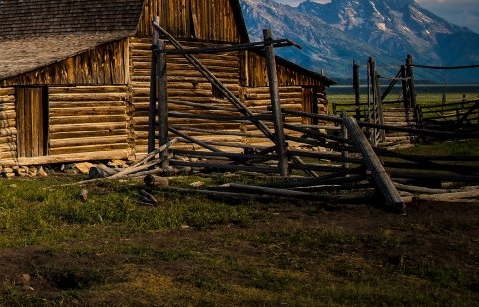一、聂鲁达你是黄昏的一朵云
全部不可能啦,有版权的。不过我有部分的: Sourced * Quién escribe tu nombre con letras de humo entre las estrellas del sur? Ah déjame recordarte cómo eras entonces, cuando aún no existías. o Who writes your name in letters of smoke among the stars of the south? Oh let me remember you as you were before you existed. o "Every Day You Play" (Juegas Todos las Días), from Twenty Love Poems and a Song of Despair [Veinte Poemas de Amor y una Canción Desesperada] (1924), XIV, trans. William S. Merwin [Penguin Classics, 1993, ISBN 0-140-18648-4] (p. 35) * Quiero hacer contigo lo que la primavera hace con los cerezos. o I want to do with you what spring does with cherry trees. o "Every Day You Play" (Juegas Todos las Días), from Twenty Love Poems and a Song of Despair [Veinte Poemas de Amor y una Canción Desesperada] (1924), XIV, trans. William Merwin [Penguin Classics, 1993, ISBN 0-140-18648-4] (p. 35) * Me gustas cuando callas porque estás como ausente, y me oyes desde lejos, y mi voz no te toca. o I like for you to be still: it is as though you were absent, and you hear me from far away and my voice does not touch you. o "I Like for You to be Still" (Me Gustas Cuando Callas), from Twenty Love Poems and a Song of Despair [Veinte Poemas de Amor y una Canción Desesperada] (1924), XV, trans. William Merwin [Penguin Classics, 1993, ISBN 0-140-18648-4] (p. 37) * Puedo escribir los versos más tristes esta noche. o Tonight I can write the saddest lines. o "Tonight I Can Write" (Puedo Escribir), from Twenty Love Poems and a Song of Despair [Veinte Poemas de Amor y una Canción Desesperada] (1924), XX, trans. William Merwin [Penguin Classics, 1993, ISBN 0-140-18648-4] (p. 49) * Es tan corto el amor y tan largo el olvido. o Love is so short and forgetting is so long. o "Tonight I Can Write" (Puedo Escribir), from Twenty Love Poems and a Song of Despair [Veinte Poemas de Amor y una Canción Desesperada] (1924), XX, trans. William Merwin [Penguin Classics, 1993, ISBN 0-140-18648-4] (p. 51) * Estoy solo entre materias desvencijadas, la lluvia cae sobre mí, y se me parece, se me parece con su desvarío,solitaria en el mundo muerto, rechazada al caer, y sin forma obstinada. o I am alone with rickety materials, the rain falls on me, and it is like me, it is like me in its raving, alone in the dead world, repulsed as it falls, and with no persistent form. o "Weak with the Dawn" (Débil del Alba) from Residence on Earth [Residencia en la Tierra] (1933), trans. William Merwin in Selected Poems by Pablo Neruda [Houghton Mifflin, 1990, ISBN 0-395-54418-1] (p. 45) * Enterrado junto al cocotero hallarás más tarde el cuchillo que escodí allí por temor de que me mataras, y ahora repentinamente quisiera oler su acero de cocina acostumbrado al peso de tu mano y al brillo de tu pie: bajo la humedad de la tierra, entre las sordas raíces, de los lenguajes humanos el pobre sólo sabría tu nombre, y la espesa tierra no comprende tu nombre hecho de impenetrables y substancias divinas. o Later on you will find buried near the coconut tree the knife which I hid there for fear you would kill me, and now suddenly I would be glad to smell its kitchen steel used to the weight of your hand, the shine of your foot: under the dampness of the ground, among the deaf roots, in all the languages of the men only the poor will know your name, and the dense earth does not understand your name made of impenetrable divine substances. o "Widower's Tango" (Tango del Viudo) from Residence on Earth [Residencia en la Tierra] (1933), trans. William Merwin in Selected Poems by Pablo Neruda [Houghton Mifflin, 1990, ISBN 0-395-54418-1] (pp. 81/83) * Si me preguntáis en dónde he estado debo decir "Sucede." Debo de hablar del suelo que oscurecen las piedras, del río que durando se destruye: no sé sino las cosas que los pájaros pierden, el mar dejado atrás, o mi hermana llorando. Por qué tantas regiones, por qué un día se junta con un día? Por qué una negra noche se acumula en la boca? Por qué muertos? o If you should ask me where I've been all this time I have to say "Things happen." I have to dwell on stones darkening the earth, on the river ruined in its own duration: I know nothing save things the birds have lost, the sea I left behind, or my sister crying. Why this abundance of places? Why does day lock with day? Why the dark night swilling round in our mouths? And why the dead? o "There's No Forgetting (Sonata)" from Residence on Earth, II [Residencia en la Tierra, II] (1935) trans. Nathaniel Tarn in Selected Poems by Pablo Neruda [Houghton Mifflin, 1990, ISBN 0-395-54418-1] (p. 121) * No quiero para mí tantas desgracias. No quiero continuar de raíz y de tumba, de subterráneo solo, de bodega con muertos ateridos, muriéndome de pena. o I do not want to be the inheritor of so many misfortunes. I do not want to continue as a root and as a tomb, as a solitary tunnel, as a cellar full of corpses, stiff with cold, dying with pain. o "Walking Around" from Residence on the Earth [Residencia en la Tierra, II] (1935), trans. by William Merwin in Selected Poems by Pablo Neruda [Houghton Mifflin, 1990, ISBN 0-395-54418-1] (p. 105) * Preguntaréis: Y dónde están las lilas? Y la metafísica cubierta de amapolas? Y la lluvia que a menudo golpeaba sus palabras llenándolas de agujeros y pájaros? o You are going to ask: and where are the lilacs? and the poppy-petalled metaphysics? and the rain repeatedly spattering its words and drilling them full of apertures and birds. o "I'm Explaining a Few Things" (Explico Algunos Cosas) from Tercera Residencia (1947), Selected Poems by Pablo Neruda [Houghton Mifflin, 1990, ISBN 0-395-54418-1] (p. 151) * Preguntaréis por qué su poesía no nos habla del sueño, de las hojas, de los grandes volcanes de su país natal? Venid a ver la sangre por las calles, venid a ver la sangre por las calles, venid a ver la sangre por las calles! o And you will ask: why doesn't his poetry speak of dreams and leaves and the great volcanoes of his native land? Come and see the blood in the streets. Come and see the bloods in the streets. Come and see the blood in the streets! o "I'm Explaining a Few Things" (Explico Algunos Cosas) from Tercera Residencia (1947), Selected Poems by Pablo Neruda [Houghton Mifflin, 1990, ISBN 0-395-54418-1] (p. 155) * Aprendió el alfabeto del relámpago. o He learned the alphabet of the lightning o "Education of a Chieftain" (Educación del Cacique) from General Song [Canto General] (1950): Los Libertadores, trans. Anthony Kerrigan in Selected Poems by Pablo Neruda [Houghton Mifflin, 1990, ISBN 0-395-54418-1] (p. 215) * Debajo de tu piel vive la luna. o The moon lives in the lining of your skin. o "Ode to a Beautiful Nude" (Oda a la Bella Desnuda), from Nuevas Odas Elementales (1956), trans. Nathaniel Tarn in Selected Poems by Pablo Neruda [Houghton Mifflin, 1990, ISBN 0-395-54418-1] (p. 349) * Sabes que en las calles no hay nadie y adentro de las casas tampoco? Sòlo hay ojos en las ventanas. Si no tienes dònde dormir toca una puerta y te abrirán, te abrirán hasta cierto punto y verás que hace frío adentro, que aquella casa está vacía, y no quiere nada contigo, no valen nada tus historias, y si insistes con tu ternura te muerden el perro y el gato. o Don't you know there is no one in the streets and no one in the houses? There are only eyes in the windows. If you don't have a place to sleep, knock on a door and it will open, open up to a certain point and you will see that it is cold inside, and that that house is empty and wants nothing to do with you, your stories mean nothing, and if you insist on being gentle, the dog and the cat will bite you. o "Soliloquy at Twilight" (Soliloquio en Tinieblas) from Book of Vagaries [Estravagario] (1958) * Y algo golpeaba en mi alma, fiebre o alas perdidas, y me fui haciendo solo, descifrando aquella quemadura y escribí la primera línea vaga, vaga, sin cuerpo, pura, tontería pura sabiduría del que no sabe nada, y vi de pronto el cielo desgranado y abierto. o And something started in my soul, fever or forgotten wings, and I made my own way, deciphering that fire, and I wrote the first faint line, faint, without substance, pure nonsense, pure wisdom of someone who knows nothing, and I suddenly saw the heavens unfastened and open. o "Poetry" (Poesía) from Memorial of Isla Negra [Memorial de Isla Negra] (1964), Selected Poems by Pablo Neruda [Houghton Mifflin, 1990, ISBN 0-395-54418-1] (p. 457) * Allí en Rangoon comprendí que los dioses eran tan enemigos como Dios del pobre ser humano. Dioses de alabastro tendidos como ballenas blancas, dioses dorados como las espigas, dioses serpientes enroscados al crimen de nacer, budhas desnudos y elegantes sonriendo en el coktail de la vacía eternidad como Cristo en su cruz horrible, todos dispuestos a todo, a imponernos su cielo, todos con llagas o pistola para comprar piedad o quemarnos la sangre, dioses feroces del hombre para esconder la cobardía, y allí todo era así, toda la tierra olía a cielo, a mercadería celeste. o There in Rangoon I realized that the gods were enemies, just like God, of the poor human being. Gods in alabaster extended like white whales, gods gilded like spikes, serpent gods entwining the crime of being born, naked and elegant buddhas smiling at the cocktail party of empty eternity like Christ on his horrible cross, all of them capable of anything, of imposing on us their heaven, all with torture or pistol to purchase piety or burn our blood, fierce gods made by men to conceal their cowardice, and there it was all like that, the whole earth reeking of heaven, and heavenly merchandise. o "Religion in the East" (Religión en el Este) from Memorial of Isla Negra [Memorial de Isla Negra] (1964), trans. by Anthony Kerrigan in Selected Poems by Pablo Neruda [Houghton Mifflin, 1990, ISBN 0-395-54418-1] (p. 463) * Es la hora, amor mío, de apartar esta rosa sombría, cerrar las estrellas, enterrar la ceniza en la tierra: y, en la insurrección de la luz, despertar con los que despertaron o seguir en el sueño alcanzando la otra orilla del mar que no tiene otra orilla. o It is time, love, to break off that sombre rose, shut up the stars and bury the ash in the earth; and, in the rising of the light, wake with those who awoke or go on in the dream, reaching the other shore of the sea which has no other shore. o "The Watersong Ends" (La Barcarola Termina) (1967), trans. Anthony Kerrigan in Selected Poems by Pablo Neruda [Houghton Mifflin, 1990, ISBN 0-395-54418-1] (p. 500) * Sólo con una ardiente paciencia conquistaremos la espléndida ciudad que dará luz, justicia y dignidad a todos los hombres. Así la poesía no habrá cantado en vano. o Only with a burning patience can we conquer the splendid City which will give light, justice and dignity to all mankind. In this way the song will not have been sung in vain. o Nobel lecture, "Towards the Splendid City" [Hacia la ciudad espléndida] (1971-12-13). In the passage directly preceding these words, Neruda identified the source of his allusion: "It is today exactly one hundred years since an unhappy and brilliant poet, the most awesome of all despairing souls, wrote down this prophecy: 'À l'aurore, armés d'une ardente patience, nous entrerons aux splendides Villes.' 'In the dawn, armed with a burning patience, we shall enter the splendid Cities.' I believe in this prophecy of Rimbaud, the Visionary." (Hace hoy cien años exactos, un pobre y espléndido poeta, el más atroz de los desesperados, escribió esta profecía: "À l'aurore, armes d'une ardente patience, nous entrerons aux splendides Villes". "Al amanecer, armados de una ardiente paciencia, entraremos a las espléndidas ciudades." Yo creo en esa profecía de Rimbaud, el Vidente.) The quotation is from Arthur Rimbaud's poem "Adieu" from Une Saison en Enfer (1873) [edit] Unsourced * Algún día en cualquier parte, en cualquier lugar indefectiblemente te encontrarás a ti mismo, y ésa, sólo ésa, puede ser la más feliz o la más amarga de tus horas. o Someday, somewhere - anywhere, unfailingly, you'll find yourself, and that, and only that, can be the happiest or bitterest hour of your life. * El fuero para el gran ladrón, la cárcel para el que roba un pan. o Impunity for the great thief, and jail for the thief who steals a loaf. * En un beso, sabrás todo lo que he callado. o In one kiss, you'll know all I haven't said. * Hoy es hoy, y ayer se fue. No hay duda. o Today is today, and yesterday is gone. There is no doubt. * La timidez es una condición ajena al corazón, una categoría, una dimensión que desemboca en la soledad. o Shyness is a condition foreign to the heart - a category, a dimension which leads to loneliness. * Podrán cortar todas las flores, pero no podrán detener la primavera. o They may mow down all the flowers, but they can't stop spring. * ¿Sufre más aquél que espera siempre que aquél que nunca esperó a nadie?. o Does he who waits forever suffer more than he who never waited for anybody? * Yo creía que la ruta pasaba por el hombre, y que de allí tenía que salir el destino. o I believed that the way passed through Man, and that it was from there that destiny had to emerge. * La risa es el lenguaje del alma. o Laughter is the language of the soul * So is the Andes. o Reply, late in life, to the accusation by a journalist that his work was "uneven" * Y esto es más facíl que mañana jueves y más difícil que seguir naciendo y es un oficio extraño que te busca y que se esconde cuando lo buscaron y es una sombra con el techo roto, pero en los agujeros hay estrellas. o And that is easier than tomorrow being Thursday and yet more difficult than to go on being born: a strange vocation that seeks you out and which goes into hiding when we seek it out a shadow with a broken roof and stars shining through its holes.
|
二、与浮云相反意思的词语
毛手毛脚-小心翼翼,粗暴-温柔,轻柔-粗暴,煞有介事-若无其事,肮脏-纯洁,一无所知-了如指掌,支离破碎-完好无损,大张旗鼓-不动声色 舍生忘死 承上启下 承前启后 开天辟地 凶多吉少 眼高手低 改天换地 惊天动地 顶天立地 欢天喜地 震天动地 取长补短 口是心非 扬长避短 翻天覆地 翻来覆去 三长两短 继往开来 顾此失彼 说长道短 虎头蛇尾 街头巷尾 似是而非 空前绝后 七上八下 你死我活 起死回生 弄假成真 将信将疑 积少成多 避重就轻 头重脚轻 挑肥拣瘦 同甘共苦 假公济私 争先恐后
|
三、感觉像浮云什么意思
一切都是浮云:大概意思就是看得见得不到的,一切都虚无缥缈,转瞬即逝,过不到好久就会消失,像天空浮云一样- -! 大概就是这么回事了。 浮云,“浮”飘浮,“云”云朵,飘浮的云朵,浮云乃是虚无飘渺之物,看的见摸不着,后面加个恋人就是指虚无飘渺的恋人,在身边却又感觉不到的恋人和不真实的恋人。
|















